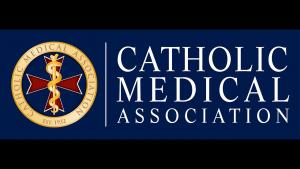I just ran across a Licare Quarterly Editorial from February that cited me. I think Barbara Golder expands on what I said about remote cooperation and adds to it. So many make odd lines where they will not accept super-remote connection in a vaccine but accept far-less-remote cooperation for a far less key good than disease prevention. Dr. Golder notes,
I was, for example, struck by the vigor of discussions on Facebook, in which the Pfizer and Moderna vaccines were deemed completely unacceptable by armchair ethicists and theologians, despite the wealth of information that explained why Catholics could, in good conscience, take those vaccines according to long-established principles.

Then she continues, citing my points about cooperation:
Fr. Matthew Schneider apparently had a similar experience and produced an article which included list of things in which we regularly engage that, arguably, have a much closer connection to ongoing evil than a cell line derived from an abortion in 1974, and about which no great concerns are raised (Schneider 2020) His list: products made by companies that support Planned Parenthood (a huge list including common brands we all use), diamonds, bananas, smartphones and tablets, anything made in China, the live action movie Mulan, coffee, search engines, major banks and insurers, social media platforms, taxes, and anything involved in alcohol production and distribution.
Feel free to quibble with his list and even his rationale, but the point remains: we tend to draw lines in interesting and sometimes inconsistent places when it comes to cooperation with evil. Curiously absent from discussion about the use of fetal cell lines in vaccine development and testing, for example, is any concern for their use in the development and testing of drugs used to treat cancer. My own sense is that, overwhelmed by so much that we cannot control and so many situations that cause us moral pain, we come to a point where drawing a line becomes important, and so we do. This far, but no farther. I suspect that is a way of reminding ourselves that the Divine spark and the Divine imperatives are still alive within us, and that is a good thing. It’s not, however, always perfectly consistent.
I think that point about how our desire to set a line refers back to our divine spark is important. Unlike many journals, the Lincare Quarterly is free online so you can read the editorial. She makes some other worthwhile points about bioethics and COVID there.
Note: Please support me on Patreon so I can keep writing more on issues like this.












